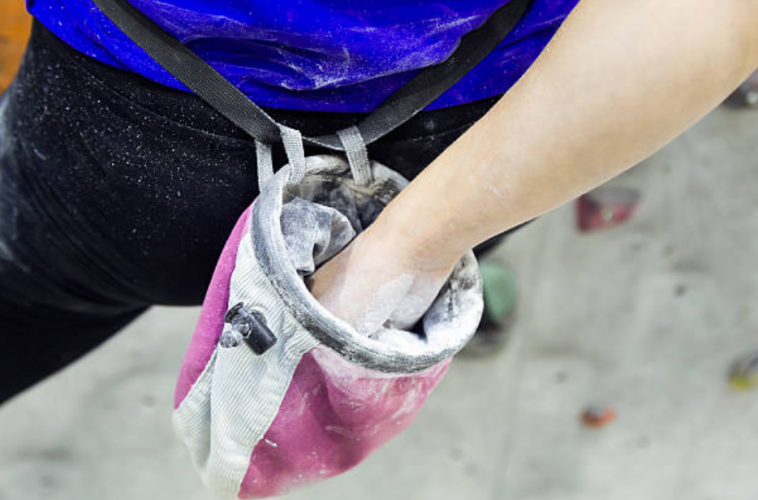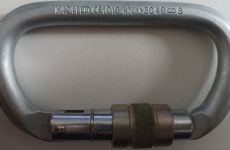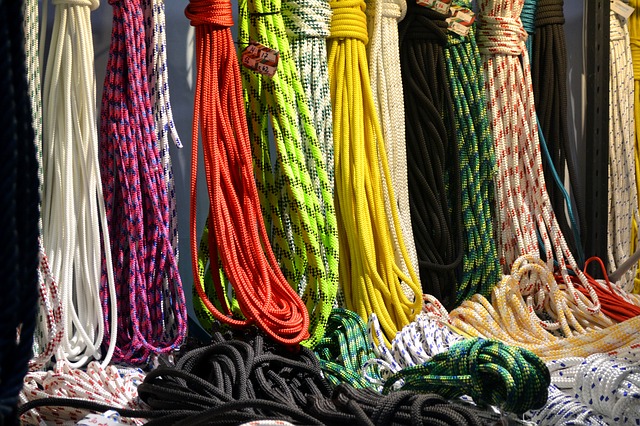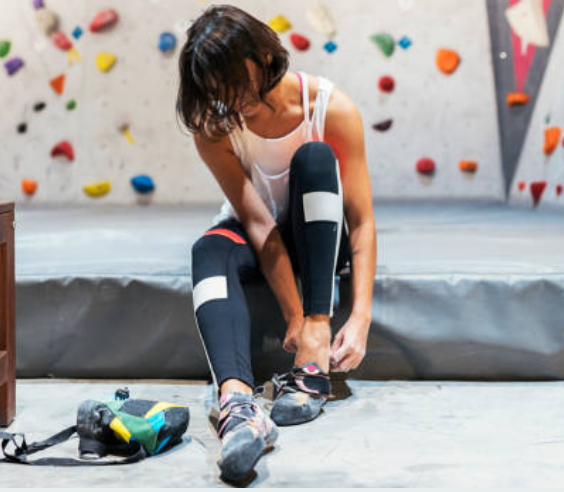
Chalk is something that you’re going to go through a lot of when you start climbing. Sweaty hands are a big problem when you’re trying to hang on.
Even for climbers whose hands don’t sweat as much, chalk smooths out your grip and makes it easy to land that hold. It’s pretty rare to see a rock climber that doesn’t chalk up before a boulder problem, and especially before heading up on a rope.
Some climbers see it as more of a psychological action that helps them prepare, focus and get ready for the send. Even if it didn’t actually help in any other measurable way, it’s still an important part of the process.
What is the best climbing chalk?
Chalk is chalk, but many climbers swear that the brand they prefer is the best. A lot of them do have slight differences, so it is going to be a personal preference that makes you decide.
There are no scientific studies behind what types of chalky hands increase your ability to grip, but it’s commonly accepted that it does. Even more mystical is are the properties of what makes a chalk good or bad. There are claims of chalks that stick to your hands better, stay on longer without needing to reapply, and even chalks that include other ingredients to soothe your hands.
If you’re really searching for the best climbing chalk, you might want to try as many different types as you can before deciding which one is for you.
Let’s take a look at the different methods used for chalking up your hands:
Loose Chalk
A chalk bag full of loose chalk seems to be the most popular use, even though some climbing gyms don’t allow loose chalk due to the mess it can cause with spills.
The biggest advantage of loose chalk is that it is quick to cover your hands. The main disadvantages are that it’s easy to spill, and an amount gets wasted while chalking your hands.
Still, many climbers prefer the chalking ritual with a bag full of fine chalk.
There might be a slight difference between brands, so it really comes down to which one you like the best. We suggest trying all of the top brands because everyone’s preferences are going to be different.
Friction Labs is a premium priced chalk, and they have many supporters that claim it’s simply the best. They claim that their chalk is one of the most pure on the market.
It comes in 3 different textures: Fine (Unicorn Dust), Chunky (Gorilla Grip), and Super Chunky (Bam Bam). You can even order a a 1 oz of each blend, so you can try them all out to see which one works best for you.
Black Diamond White Gold is very popular chalk with climbers. It is also marketed as being “pure”. Many climbers claim that it is very soft, lasts a long time, and has less of a problem of going airborne.
Primo Chalk chalk comes in a resealable bucket. It also has added ingredients like essential oils to help condition your skin. Climbers that use this say it feels nice, smells nice, and stays on your hands a long time.
Chalk Blocks
Some climbers prefer to have a block of chalk in their bag. It is less messy, but it can also take a bit longer to chalk up your hands than just dipping them into loose chalk. Chalk blocks also give you the flexibility to break them up, and to control the level of chunkiness in your loose chalk once you’ve done so. You can either break the chalk up in a plastic bag before transporting it to your chalk pouch, or just break it into a couple pieces and put the large chunks right in.
Metolious is a popular rock climbing gear company that focuses on gear to make your climbing life advance. One of their great convenient products is this pure 2 oz block of pure magnesium carbonate.
GSC Gym Chalk was originally created for weight lifters in the gym, but works just as well for gripping on to rock climbing holds as it does the barbell. It is available in 1 pound of 8 2oz blocks wrapped together for a very good price. It is cost efficient and convenient.
Chalk Balls
Chalk balls are sock-like fabrics with chalk pre-packaged in them for convenience. Balling your chalk up in a “sock” helps keep the chalk contained, and makes it easy to chalk up your hands with the round ball. Some climbing gyms will only allow chalk balls because there is less accidental waste and spilling. You can easily make your own chalk sock, or you can buy disposable ones, and there are even refillable models.
A prepackaged chalk ball containing a mix of chalk and a cooling menthol extracts that help cool your hands as well dry. The Ice chalk is available in loose chalk form as well.
HumanX Chalk Balls are good quality, convenient, nice looking, and refillable. They come in a package of two, so they are great for large bouldering chalk pots. They come filled with chalk, but you can easily refill them with your own choice.
Liquid Chalk
Some climbers think liquid chalk is somewhat of a novelty item, but it works surprisingly well. You spread it on your hands as a liquid and then wait a couple seconds for it to dry and it turns into a chalky covering on your hands. There is no dust, and very little waste. It is helpful to keep it in a ziplock bag in your pack though, because it can leak.
For climbing tall routes, some people use it at the beginning and then switch to the powdered chalk in their chalk bag if it wears up, so it can be used in combination with other methods as well.
Liquid chalk is also great in very humid or wet outdoor conditions, because it won’t clump up and turn to clay.
Black Diamond Liquid White Gold is a non-toxic and dust-free alternative to powdered chalk in a bottle that’s very easy to apply.
FrictionLabs Secret Stuff is a creamier version of liquid chalk, making it even easier to apply, and less likely to spill.
SportmediQ Liquid Chalk is a great liquid chalk product that comes in a convenient bottle that you can clip right onto your harness.
What’s your favourite method of chalking up? Do you find that the different brands make a big difference? We’d love to know what you think.


